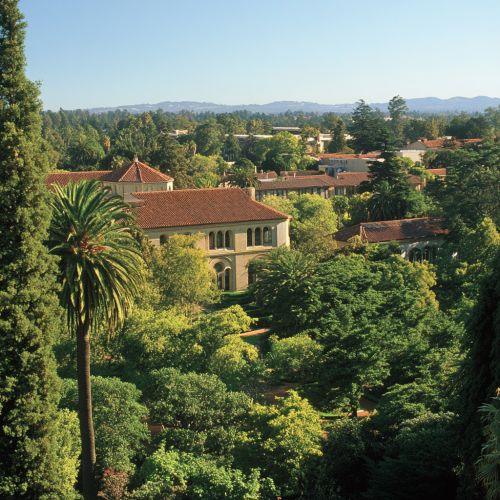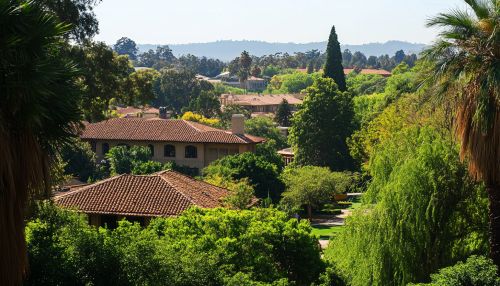Stanford Environmental Law Society: Difference between revisions
(Created page with "== Introduction == The Stanford Environmental Law Society (SELS) is a student-run organization at Stanford Law School, dedicated to fostering a deeper understanding of environmental law and policy. Established in the early 1970s, SELS provides a platform for students to engage with pressing environmental issues through advocacy, education, and community involvement. The society plays a pivotal role in shaping future leaders in environmental law by offering oppor...") |
No edit summary |
||
| Line 37: | Line 37: | ||
SELS facilitates networking opportunities for students by organizing events with alumni and professionals in the field of environmental law. These interactions help students build connections and explore career paths in environmental advocacy, policy, and academia. | SELS facilitates networking opportunities for students by organizing events with alumni and professionals in the field of environmental law. These interactions help students build connections and explore career paths in environmental advocacy, policy, and academia. | ||
[[Image:Detail-99465.jpg|thumb|center|View of Stanford University campus with lush greenery and academic buildings.|class=only_on_mobile]] | |||
[[Image:Detail-99466.jpg|thumb|center|View of Stanford University campus with lush greenery and academic buildings.|class=only_on_desktop]] | |||
== Impact and Contributions == | == Impact and Contributions == | ||
Latest revision as of 07:52, 30 October 2024
Introduction
The Stanford Environmental Law Society (SELS) is a student-run organization at Stanford Law School, dedicated to fostering a deeper understanding of environmental law and policy. Established in the early 1970s, SELS provides a platform for students to engage with pressing environmental issues through advocacy, education, and community involvement. The society plays a pivotal role in shaping future leaders in environmental law by offering opportunities for practical experience, networking, and scholarly discourse.
History and Formation
The origins of the Stanford Environmental Law Society can be traced back to the growing environmental movement of the late 1960s and early 1970s. This period saw a surge in environmental awareness, leading to the establishment of key legislative frameworks such as the National Environmental Policy Act and the Clean Air Act. In response to these developments, a group of environmentally conscious students at Stanford Law School founded SELS to address the legal dimensions of environmental protection.
Mission and Objectives
SELS is committed to advancing the understanding and application of environmental law. Its primary objectives include:
1. **Education and Awareness**: SELS organizes lectures, workshops, and panel discussions featuring prominent environmental law scholars and practitioners. These events aim to enhance students' knowledge of environmental issues and legal frameworks.
2. **Advocacy and Policy Development**: The society actively participates in policy discussions and advocacy efforts at local, national, and international levels. SELS members contribute to drafting policy recommendations and engage in public interest litigation.
3. **Community Engagement**: SELS fosters collaboration with environmental organizations, government agencies, and community groups to promote sustainable practices and environmental justice.
Activities and Initiatives
SELS undertakes a variety of activities to fulfill its mission:
Educational Programs
The society hosts a series of educational programs throughout the academic year. These include guest lectures by leading environmental law experts, workshops on legal research and writing, and seminars on emerging environmental issues such as climate change and biodiversity conservation.
Advocacy Projects
SELS members engage in advocacy projects that address critical environmental challenges. These projects often involve collaboration with non-profit organizations and government agencies. Recent initiatives have focused on renewable energy policy, water rights, and habitat preservation.
Moot Court Competitions
To provide practical legal experience, SELS organizes moot court competitions that simulate real-world environmental litigation. These competitions allow students to hone their advocacy skills and gain insights into the complexities of environmental law.
Networking Opportunities
SELS facilitates networking opportunities for students by organizing events with alumni and professionals in the field of environmental law. These interactions help students build connections and explore career paths in environmental advocacy, policy, and academia.


Impact and Contributions
Over the years, SELS has made significant contributions to the field of environmental law. Its members have been involved in landmark cases and policy initiatives that have shaped environmental jurisprudence. The society's efforts have also led to increased awareness and engagement with environmental issues within the Stanford community and beyond.
Challenges and Future Directions
Despite its successes, SELS faces challenges in addressing the evolving landscape of environmental law. The increasing complexity of global environmental issues, such as climate change and transboundary pollution, requires innovative legal solutions and interdisciplinary collaboration. SELS aims to expand its reach by fostering partnerships with other academic institutions and organizations worldwide.
Conclusion
The Stanford Environmental Law Society continues to play a vital role in educating and empowering future leaders in environmental law. Through its diverse activities and initiatives, SELS remains committed to promoting environmental justice and sustainability. As environmental challenges become more pressing, the society's work is more important than ever in shaping a sustainable future.
